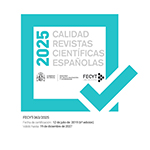Intersectionality and its journeys: from counterhegemonic feminist theories to law of european multilevel democracy
Abstract
Democratization processes imply questioning the discriminatory effects of law and politics, and challenging exclusionary legal categories and political institutions. Intersectionality was born as a tool for critical legal analysis and allowed identifying the multiplicity of interactions generated by social exclusion on the grounds of gender, sexual orientation, race, religion, national origin, (dis)ability and socioeconomic status, shedding light on the complexity of the mechanisms of power and privilege in social relations. In the last twenty-five years, intersectionality gained increasing popularity in the Anglophone academia, but it had uneven diffusion in the different socio-political contexts. The goal of this article is to identify the challenges of using intersectionality in the multilevel context of the European Union. To this end, the first part of this article addresses the conceptual origins of intersectionality, providing a genealogy that connects it with counterhegemonic feminist theories. In the second part, intersectionality is put in the American socio-legal context of the 70s where it originated in connection with the movement of Critical Legal Studies. Finally, considering the challenges involved in transposing into the legal framework of European Union a concept that traveled from another legal system, the third part of the article offers an overview of the recent development of European Union law as an example of the advancements and challenges that the introduction of intersectionality can suppose for democratic societies. The final goal of this study is to contribute to the broader debate on the implementation of intersectionality in the multilevel European democracy.
Downloads
Article download
License
In order to support the global exchange of knowledge, the journal Investigaciones Feministas is allowing unrestricted access to its content as from its publication in this electronic edition, and as such it is an open-access journal. The originals published in this journal are the property of the Complutense University of Madrid and any reproduction thereof in full or in part must cite the source. All content is distributed under a Creative Commons Attribution 4.0 use and distribution licence (CC BY 4.0). This circumstance must be expressly stated in these terms where necessary. You can view the summary and the complete legal text of the licence.











